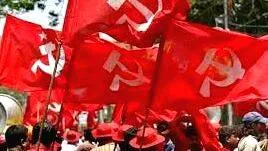

MADURAI: The 24th Party Congress of the CPM commenced in Madurai with sharp self-criticism over electoral and protest setbacks, stagnation in growth across states, and the party’s weakening grassroots worker base. The organizational report highlighted concerns about the party’s declining ability to mobilize workers and the shift in its protest strategies. It also criticized the dilution of political campaigns, which have been reduced to mere formalities. The report acknowledged lapses in implementing the directives of the previous Party Congress and pointed out shortcomings within the Politburo (PB) in executing these plans.
One of the major concerns raised was the increasing parliamentary focus within the party. The report noted that even in constituencies where the party had little chance of success, members were eager to contest elections. Additionally, those denied candidacy often distanced themselves from election campaigns. Corruption remains a significant issue in Telangana, while in Tamil Nadu, the situation has worsened to the extent that elections had to be conducted for secretary positions in 14 districts.
Despite these setbacks, the party's membership has grown since the last Party Congress, increasing from 985,757 to 1,019,009. However, the implementation of mandatory attendance rules for committees has not been strictly followed. The report emphasized the need for continuous corrective measures and called for changes in the functioning of the Central Committee.
Greater representation for marginalized communities
The report stressed the need for increased representation of Dalits, Adivasis, and Muslims within the party. While Dalit representation stands at 19.3% and is above the state average in most states except Maharashtra, efforts must be made to enhance Adivasi participation. Muslim representation within the party is significantly low, except in Delhi, and the report called for concentrated efforts to increase Muslim membership across all states. It also emphasized the importance of bringing more socially oppressed groups into the party fold.
Decline in women’s representation in Kerala
The report criticized the Kerala unit for failing to increase women's representation in the party. Women's representation in local committees declined from 17% to 15%, and the number of women in the state committee dropped from 13 to 12. In contrast, Hindi-speaking states showed improvement, with Delhi having 27.5% female representation and Madhya Pradesh at 20%. The report suggested that more women should be brought into the party through outreach efforts in government welfare schemes.